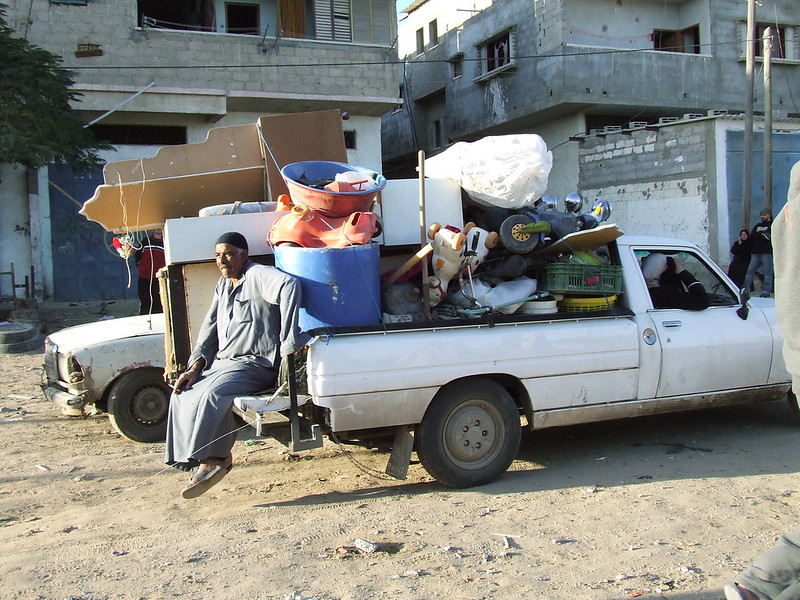Being Poor in Egypt: The Threat of Inflation and Currency Depreciation
 There had been a measured decrease in extreme poverty levels in Egypt between 2017 and 2020, from 6.2% to 4.5%. Thus, it appeared that the issue of poverty in Egypt was gradually declining. Notwithstanding, the country now finds itself in a financial crisis, which record levels of inflation and subsequent depreciation of its currency (the Egyptian Pound) further fuels. Core inflation in Egypt measured a year-on-year price level increase of 31.2% in January 2023. Moreso, the value of the Egyptian Pound capitulated against the US dollar and has subsequently lost about 50% of its value.
There had been a measured decrease in extreme poverty levels in Egypt between 2017 and 2020, from 6.2% to 4.5%. Thus, it appeared that the issue of poverty in Egypt was gradually declining. Notwithstanding, the country now finds itself in a financial crisis, which record levels of inflation and subsequent depreciation of its currency (the Egyptian Pound) further fuels. Core inflation in Egypt measured a year-on-year price level increase of 31.2% in January 2023. Moreso, the value of the Egyptian Pound capitulated against the US dollar and has subsequently lost about 50% of its value.
Poverty in Egypt: A Resurging Problem
Poverty is resurging in Egypt, with approximately one-third of the population living in impoverished conditions and millions more struggling financially. The nation’s economy continues to face significant challenges, including rising inflation that hampers citizens’ economic and social rights, as well as their access to sufficient food and essential services. In August 2022, annual inflation surged to 15.3%, compared to just over 6% in the same month the previous year.
Furthermore, the Egyptian pound recently hit a historic low against the strengthening U.S. dollar, with an exchange rate of 19.5 pounds to $1. Consequently, this depreciation has widened trade and budget deficits, as the diminishing foreign reserves have resulted in a nearly 10% decline in purchases of grain and fuel in March 2022. For impoverished Egyptians, these economic challenges make life significantly more difficult, as they struggle to meet their basic needs, particularly regarding food. Additionally, the devaluation of the Egyptian Pound in the currency market poses heightened difficulties for the country in importing goods.
Responses
The International Monetary Fund (IMF) has provided some of the much-needed financial aid in Egypt. A recent agreement for a 46-month loan program valued at $3 billion with the Egyptian government aims to attenuate at least some of the monetary issues in the country, including its outstanding debts. The theory behind this is that if Egypt staves off the fears of its defaulting on the national debt, the run on its currency will end, holding greater confidence in the Egyptian economy to stay solvent. If this can be achieved imports would become cheaper and capital will again be able to flow into the country boosting supply shortages. Simply put, this effort aims to increase the Egyptian Pounds value against hard currencies such as the US Dollar and Euro, thereby enabling local individuals and businesses to more easily buy foreign goods and capital that cannot be sourced from within Egypt.
Other nations and organizations have chipped in with a specific focus on agricultural and food issues in Egypt. Japan recently pledged $3.8 million in aid through the Food and Agricultural Organization (FAO) focused on agricultural development in Egypt. Furthermore, the World Bank approved a $500 million project in Egypt aimed at ensuring all vulnerable families in the country can afford food. This served to strengthen Egypt’s resilience to food crises and support reforms in food security policies. Additionally, the project has tasked itself with monitoring and improving nutritional outcomes in the country.
Looking Ahead
Despite the challenges Egypt faces with its financial crisis and increasing poverty rates, international support is being extended to address these issues. The IMF’s loan program aims to alleviate monetary challenges and restore confidence in the Egyptian economy. Furthermore, contributions from Japan and the World Bank specifically target agricultural development and food security, providing hope for improved resilience and access to essential resources for vulnerable populations in Egypt. These collaborative efforts hold the potential to mitigate the impact of poverty and contribute to a brighter future for the country.
– Christopher Maddocks
Photo: Flickr
